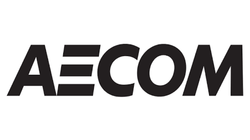AECOM powers up to meet South Africa’s energy challenges
| Press release_AECOM powers up to meet South Africa’s energy challenges | 29.5 KB | Download | |
| AECOM offers total power solutions from generation to transmission and distribution. | 4.86 MB | Download | |
| AECOM sees a shift away from the one-utility model to a mix of utilities, IPPs and PPP providers. | 1.23 MB | Download | |
| Effective and reliable electrical energy delivery faces significant challenges in South Africa. | 4.45 MB | Download | |
| Nico Kruger, Business Line Leader Energy – Africa, Resources & Industry at AECOM. | 853.5 KB | Download |
“We share the vision and passion of rapidly increasing the access to electricity for all the citizens of Africa. We are convinced that the new dawn for Africa has arrived, and we intend deploying our considerable talent to support the growth in the utility sector in Africa to the benefit of all African peoples,” Nico Kruger, Business Line Leader Energy – Africa, Resources & Industry at AECOM comments.
The bulk of South Africa’s power is produced by Eskom. With an installed capacity of some 42 000 MW and a peak demand that at times threatened to exceed 33 000 MW, the power utility was left with a theoretical reserve margin of 9 000 MW.
It is commonly accepted practice to have at least 15% spinning reserve available, hence applying 15% to 33 000 MW translates to ~38 000 MW. “On the face of it, that seems adequate. However, the reality is that the actual Energy Availability Factor (EAF) was trending below 74%, meaning that only 31 000 MW was available on average. That places South Africa in a very precarious situation,” Kruger cautions.
He adds that the challenges facing Eskom are diverse, ranging from poor-quality coal to inadequate and irregular supply of coal, maintenance in arrears, constraints on capital expenditure, and loss of skills in all the key disciplines of engineering, maintenance and operations.
“The addition of Medupi and Kusile (combined about 9 000 MW) will not happen at once, and can at best be phased to include between 800 MW and 1 600 MW a year. The addition of this load will be welcome, but if demand in growth is factored in, and the EAF does not improve substantially, the addition of these two large power plants will not significantly take us from the ever-present edge of load-shedding,” Kruger stresses.
Further, if one considers the emissions emitted by the Eskom fleet versus World Bank requirements, then significant capital investment is required to ensure compliance. “Given the present economic circumstances and debt downgrades, raising this capital will be challenging,” Kruger points out.
South Africa’s Renewable Energy Independent Power Producer Procurement Programme (REIPPPP) has been hugely successful, and has achieved much international acclaim. However, the utilisation factor on renewable energy is low due to the inherent problem of sunshine and strong wind not being available 24/7.
“South Africa needs additional sources of power generation,” Kruger argues. Hence the major focus at present on the Department of Energy’s Independent Power Producer (IPP) programme for coal and gas.
“Some 2 500 MW of coal and 3 500 MW of gas generated power is envisaged, and due to the nature and size of the plants, a distributed base is likely to ensure greater continuity of supply. It is of vital importance that these two programmes are launched successfully and grow from the present target to support Eskom to meet the power requirements of the future,” Kruger points out.
“AECOM has a unique offering to provide. We address complex challenges. Governments and organisations rely on us to help them solve the complex challenges critical to their missions and mandates.”
“We use our connected expertise — clients face tough challenges, and we work to understand and solve them better than anyone else. We match the complexity of these challenges with the diversity of our expertise, spanning all phases of the development life cycle. This experience delivers innovative solutions that transform communities and improve lives,” Kruger concludes.
Ends
Notes to the editor
To download hi-res images for this release, please visit http://media.ngage.co.za and click on the AECOM link to view the company’s press office.
About AECOM
AECOM is a premier, fully integrated professional and technical services firm. It designs, builds, finances and operates infrastructure assets around the world for public- and private-sector clients. In Africa, AECOM has offices in over 20 countries, including Botswana, Ghana, Kenya, Mozambique, Nigeria, South Africa and Uganda. With top-level professionals in multiple locations, AECOM understands Africa’s specific infrastructure needs, together with the inherent challenges of working on the continent. Its multi-disciplinary teams of award-winning engineers, planners, architects, environmental specialists, economists, scientists, consultants, cost, project and programme managers are committed to delivering projects that improve the quality of life of communities throughout Africa.
Media Contact
Mmule Ncongwane
NGAGE Public Relations
Phone: (011) 867-7763
Fax: 086 512 3352
Cell: 083 661 8751
Email: mmule [at] ngage [dot] co [dot] za
Web: www.ngage.co.za
Browse the NGAGE Media Zone for more client press releases and photographs at http://media.ngage.co.za

